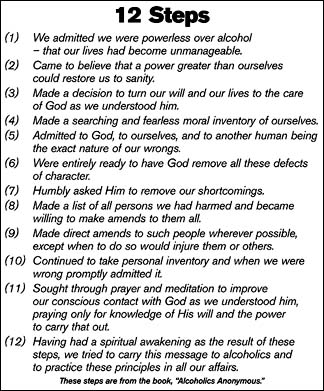Ten years ago, few of us would have considered chemical dependency, sexual addiction, or eating disorders suitable topics for polite conversation within the church community. These were among the “silent issues” in the church. Today, however, addiction, compulsive behavior and abuse are widely recognized as problems of enormous personal and social significance. Consider these statistics (Washton, Bundy, Willpowers Not Enough, Harper Perenial, 1998). 
- At least six million Americans are addicted to cocaine.
- Between five million and ten million are addicted to prescription drugs.
- Ten million Americans are alcoholics.
- More than 50 million Americans are addicted to nicotine.
- Countless more are addicted to television, shopping, exercise, sports, and even cosmetic surgery.
- It is estimated that every addict directly affects at least ten other people.
- Divorce impacts Christian families as often as secular couples.
- Abortion is the choice in 1 in 5 pregnancies, since 1973 Roe vs.Wade over 25 million performed.
Emerging Awareness
The Christian community is not immune to these difficulties. Many life-long Christians struggle with addiction. In addition, many people come to Christ hoping to find freedom from the bondage of addiction. Often these new Christians expect their problems will immediately disappear as a result of their conversions. Eventually, however, many discover that true healing requires a lengthy process of righting the wrongs of their past. Some of these people who suffer from addiction, compulsive behavior, or abuse find it difficult to be part of a church community. They may find that within their church, self-defeating behavior is denied, ignored, or minimized by those who use religion to shield themselves from life’s realities
Pastors and church leaders are becoming










